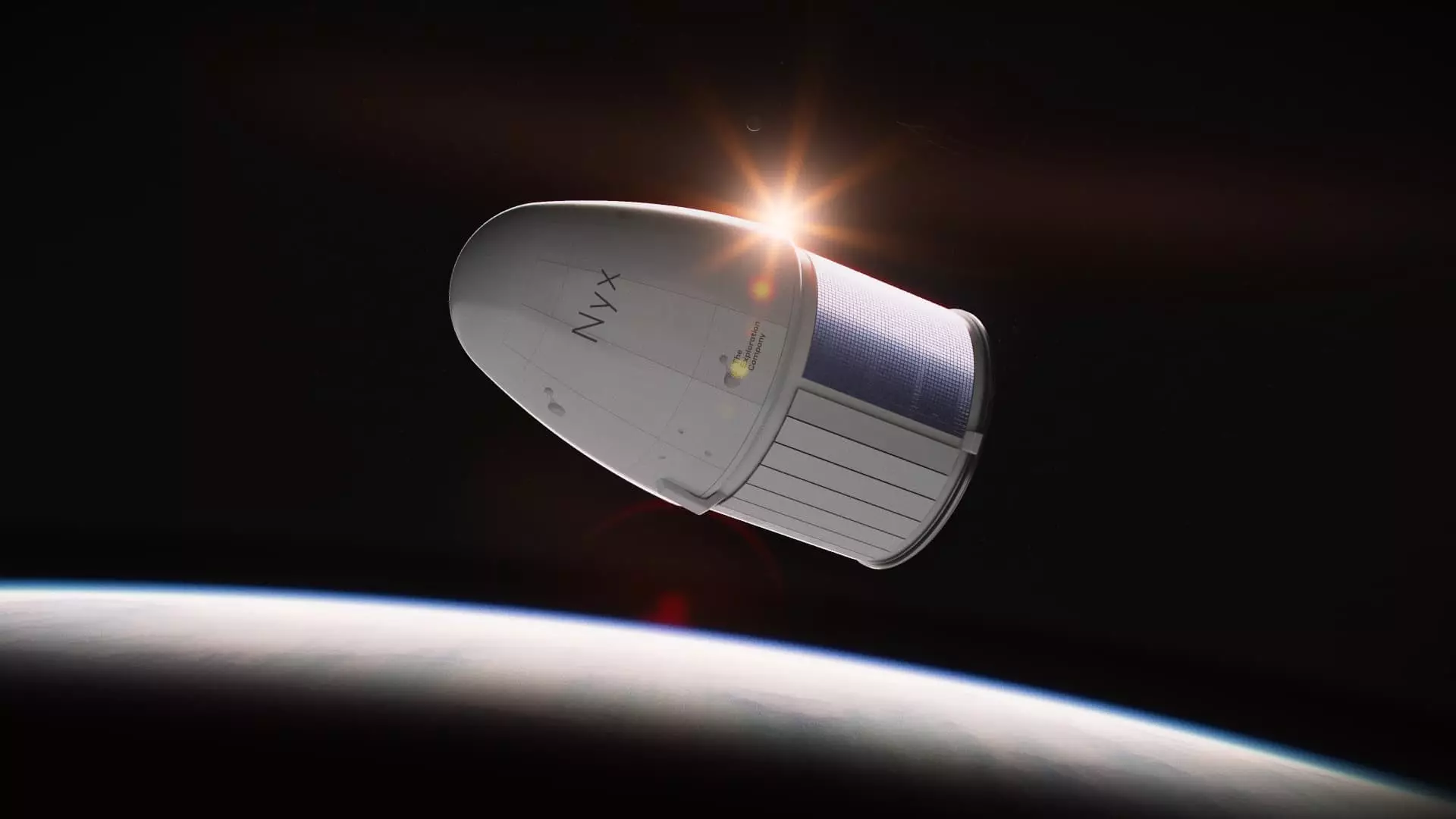The space industry is witnessing a transformative moment as The Exploration Company (TEC) emerges as a prominent player in the burgeoning commercial space sector. Recently, TEC secured a substantial investment of $160 million, catalyzing the development of its innovative space capsule, Nyx. This funding round, led by venture capital heavyweights Balderton Capital and Plural, also attracted support from government-backed organizations such as French Tech Souveraineté and the German DeepTech & Climate Fonds. The financial backing underscores the growing interest and seriousness of various stakeholders in facilitating space exploration through advanced technology.
Central to TEC’s mission is Nyx, a reusable capsule designed to transport both astronauts and cargo to destinations such as space stations. The resilience and reusability of the Nyx capsule are crucial characteristics, enabling it to return to Earth’s atmosphere post-mission and be prepared for subsequent launches. This attribute could revolutionize cost efficiency in space travel, as reusability has been a major hurdle for many aspiring space ventures. Hélène Huby, the CEO and founder of TEC, emphasizes the burgeoning market, stating that it is growing at a rate exceeding 10% annually due to increasing global interest in space exploration. More nations are aspiring to launch astronauts and participate in missions to the moon, hinting at a robust future landscape for space travel.
Despite the potential for growth in the space sector, TEC faces stiff competition from established companies such as SpaceX, which has already made significant strides with its Dragon capsule. The reality is that the commercial space market is relatively nascent with a handful of players dominating the field, and TEC has smartly identified a substantial opportunity in developing its European-centric solution. As global ambitions for lunar and deep-space missions escalate, TEC’s strategic choice to enhance Europe’s capability in space exploration is not only timely but essential. Huby’s vision to establish Europe as a significant player reaffirms the idea that future space endeavors should not solely rely on industry giants.
Looking ahead, TEC is in the midst of developing the second iteration of the Nyx capsule, with a planned launch next year, followed by a final model projected for 2028. This meticulous advancement timeline reflects the company’s commitment to innovation and reliability. Notably, part of the project’s financing will come from contracts with the European Space Agency, illustrating collaborative efforts towards shared goals in space exploration. Additionally, TEC has already secured impressive contracts worth $800 million with key players in the industry such as Starlab and Axiom Space, indicating strong market confidence in TEC’s capabilities to meet the demand for reliable transport to and from space.
Increasing activity from global powers like the U.S., China, and India is reshaping the landscape of space exploration and governance in orbit. Ambitious projects like NASA’s Gateway space station underscore the escalating competition and collaborative potential in lunar exploration. With a growing population of astronauts and an expansion of cargo needs, the momentum in the industry signals that future missions will require innovative solutions for transport as well as cargo return mechanisms. Huby believes that TEC is positioned to play a pivotal role in these developments, especially concerning the technology needed to return cargo from space.
TEC’s strategic financing and visionary leadership place it on a path to become a key player in the commercial space sector. As the exploration of space becomes increasingly accessible, companies like The Exploration Company are essential for advancing technology and building infrastructure critical for international collaboration. The Nyx capsule symbolizes more than just a means of transport; it heralds a new age where space is not the final frontier, but rather the first step in humanity’s ongoing quest to explore the cosmos. As interest in space expands, TEC’s innovations may well lead to a future where space travel is as routine as air travel—fostering greater discovery and shared experiences in the universe beyond our planet.

